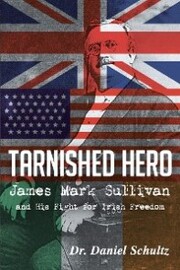Detailansicht
Tarnished Hero
eBook
ISBN/EAN: 9781641380911
Umbreit-Nr.: 2281904
Sprache:
Englisch
Umfang: 270 S.
Format in cm:
Einband:
Keine Angabe
Erschienen am 21.11.2019
Auflage: 1/2019
E-Book
Format: EPUB
DRM: Adobe DRM
- Zusatztext
- <p>James mark Sullivan was part of the post-famine Irish immigration to the United States in the late 19th century. Overcoming family misfortune, he moved from newsboy to journalist to Yale-educated lawyer. Relocating to New York City, his association with Tammany Hall involved him in the "Crime of the Century" Becker-Rosenthal murder case, a role not previously explored. Sullivan's involvement won him a patronage appointment as ambassador to Santo Domingo. Scandals about graft and corruption forced his resignation. However, another factor which contributed to his dismissal, unexplained until now, was his effort at subversion of his government's policy of neutrality, which was connected to his ties to Irish nationalism. He later established the first indigenous Irish film company with a pronounced Nationalist agenda, making several films which are now classics of the silent film era. Following the death of his wife and son during the influenza epidemic of 1918, he returned to the United States. Failing to revive his legal career, he removed to Florida, dying in relative obscurity.</p>
- Kurztext
- James mark Sullivan was part of the post-famine Irish immigration to the United States in the late 19th century. Overcoming family misfortune, he moved from newsboy to journalist to Yale-educated lawyer. Relocating to New York City, his association with Tammany Hall involved him in the &quote;Crime of the Century&quote; Becker-Rosenthal murder case, a role not previously explored. Sullivan's involvement won him a patronage appointment as ambassador to Santo Domingo. Scandals about graft and corruption forced his resignation. However, another factor which contributed to his dismissal, unexplained until now, was his effort at subversion of his government's policy of neutrality, which was connected to his ties to Irish nationalism. He later established the first indigenous Irish film company with a pronounced Nationalist agenda, making several films which are now classics of the silent film era. Following the death of his wife and son during the influenza epidemic of 1918, he returned to the United States. Failing to revive his legal career, he removed to Florida, dying in relative obscurity.
